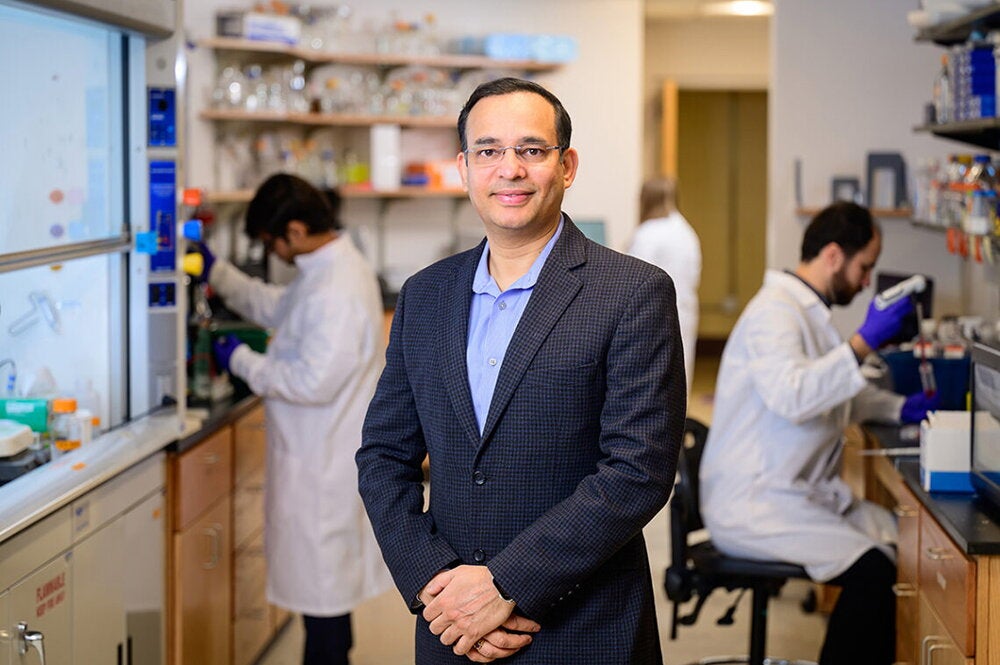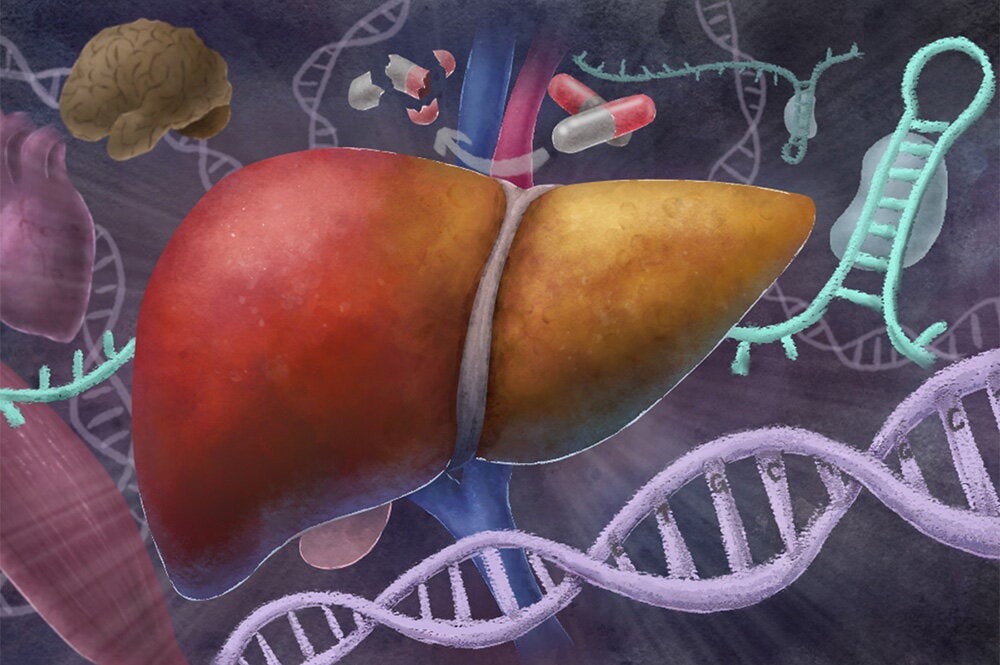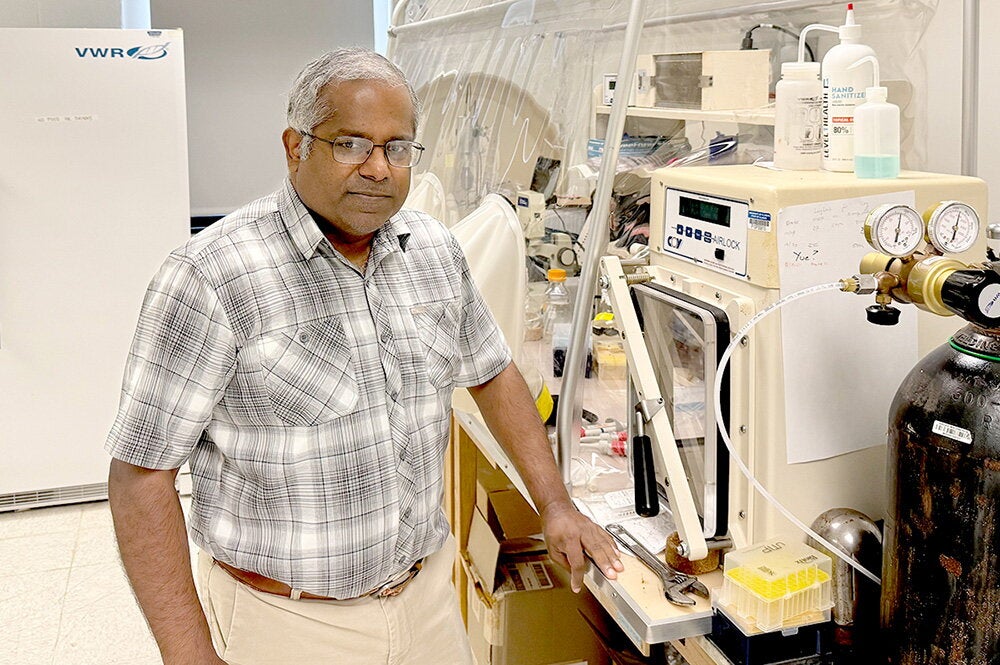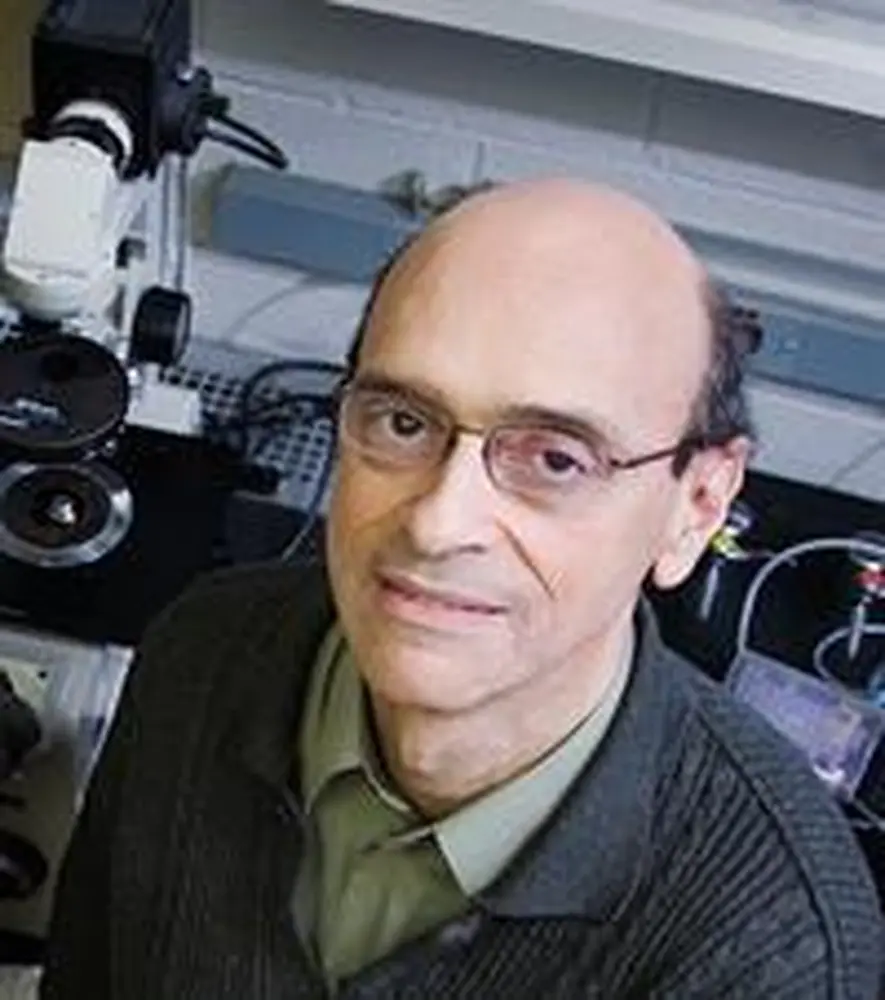
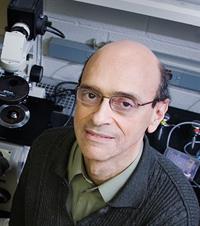
Certain types of breast cancer tumors are tough to defeat, resisting current treatments. But LAS researchers have discovered a new family of compounds that show great potential in combating tumors that are specifically activated by estrogen. This opens the door to research on new drugs to battle estrogen-dependent breast cancers.
Although multiple factors can contribute to breast cancer, estrogens play a key role in the growth of many tumors, says David J. Shapiro, a professor of biochemistry in LAS. Most breast cancers in women over age 45 are activated by estrogen through a protein called estrogen receptor. These tumors are known as estrogen-receptor-positive, or ER-positive, tumors.
According to Shapiro, current therapies for ER-positive breast cancers include the use of drugs, such as tamoxifen, that interfere with estrogen's ability to bind to the estrogen receptor. Over time, however, these breast tumors can become resistant to tamoxifen. And in some resistant tumors, the tamoxifen can act like estrogen and even stimulate tumor growth.
That is why Shapiro's team began the hunt for other ways to target the estrogen action. They identified inhibitors that effectively retard the production of proteins that promote the growth and proliferation of ER-positive breast cancer cells.
“These small molecules specifically block growth of ER-positive breast cancer cells with little or no effect on other cells,” Shapiro says. “This work sets the stage for further development and testing of these inhibitors.”
